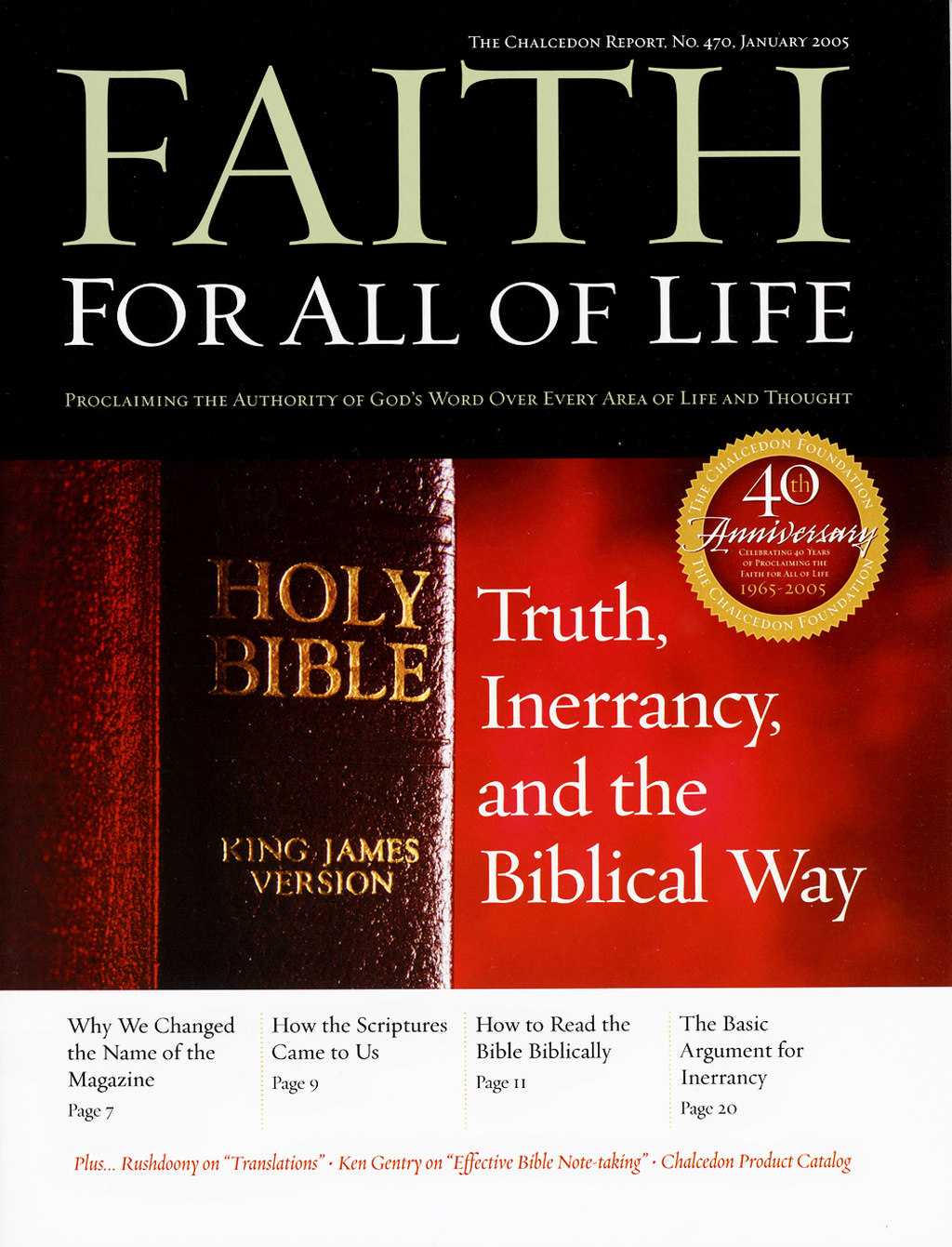
Magazine Issue
Truth, Inerrancy, and the Biblical Way
January 2005 Articles:
Translation and Subversion

- R. J. Rushdoony
The Father as a Teacher of the Word

- Mark R. Rushdoony
Why We Changed the Name of the Magazine
- Christopher J. Ortiz
How Scripture Came to Us
- Greg Uttinger
How to Read the Bible Biblically
- Joe Morecraft, III
The Bible as a Precondition for Knowledge
- Jim West
Deconstructionism, Postmodernism and Biblical Revelation
- Christopher B. Strevel
Governing Our Lives by the Word of God
- Roger Schultz
Sovereignty and Truth: The Basic Argument for Inerrancy
- Eugene Clingman
Mark My Words: Effective Bible Notation
- Kenneth L. Gentry, Jr., Th.D.
The Bible as a Tool of Dominion
- Samuel L. Blumenfeld
God's Word Is Truth
- Buddy Hanson
Self-Government Requires Self-Denial
- Rick Williams